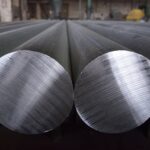Hydro opens new aluminium recycling plant
Hydro, the Norwegian aluminium and renewable energy company, and a world leader in the production of recycled and low-carbon aluminium, recently celebrated the official opening of its recycling plant in Cassopolis, Michigan.
Hydro expects to produce 265 million pounds (120,000 metric tons) of aluminium extrusion ingot per year at the site.
The Cassopolis plant is the third greenfield recycling plant the company has built in the United States. In total, Hydro has 11 recycling plants in the U.S and one in Canada, but Cassopolis is the first to serve as a large-scale producer of Hydro CIRCAL.
Hydro CIRCAL contains at least 75% post-consumer aluminium scrap, certified by third-party auditors DNV GL, and has a market-leading CO2 footprint of just 2.3 kg CO2e per kg aluminium or less.
The new plant uses Hydro’s next-generation recycling technology, which the company pioneered in Europe. The plant will bring more post-consumer aluminium scrap back to life as value added products in the automotive, transport, building and construction, and the consumer durables markets.
With the start up of production in Cassopolis, Hydro will now have the ability to produce more than 2.2 billion pounds of recycling based aluminium billet each year in the US. Recycling scrap aluminium requires only 5% of the energy used to produce primary aluminium, saving energy and reducing greenhouse gas emissions.
The plant will make its initial deliveries to non-automotive customers. Once qualification trials are completed, the automotive industry will be the destination for more and more of the extrusion ingot produced in Cassopolis.
In anticipation of the production at Cassopolis, Hydro has been delivering quantities of Hydro CIRCAL to US customers from its plants in Commerce, Texas, and Henderson, Kentucky for the past year and a half.
Michigan is home to about 90% of the top 100 automotive suppliers to the US. For years, automakers have been using aluminium to reduce the weight of gasoline- and diesel-powered vehicles, lowering fuel consumption and emissions, and increasing performance.
The metal also plays a significant role in the lightweighting of electric and hybrid vehicles, which tend to be heavier than cars with internal combustion engines due to the weight of the batteries.
Hydro invested approximately US$150 million in the new plant.








